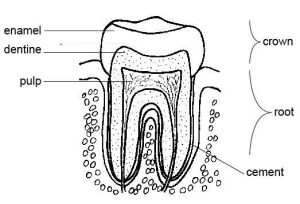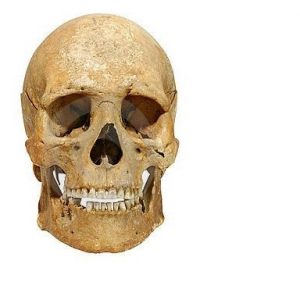Did you know that your teeth are in a constant communication with your brain? There is a hormonal feedback loop with the hypothalamus area that controls the pressure in the pulp and the resulting fluid flow helps prevent decay. No one has been writing about this more than Dr. Ken Southward. That is why I am a fan of his. His article a few years ago on this subject shows the current model of cavities, called the acid theory of decay, is incomplete. His work has changed the way I look at tooth decay and has the potential to offer up some new treatments. When you are working with an incomplete theory you get less than optimal results. This in my opinion is why modern dentistry has been unable to bring the decay rates down. They are stuck in the paradigm of drill, fill, and bill when we possess the tools to eliminate decay for good. Couple this with the observations that prior to the development of agriculture roughly 12,000 years ago humans seldom if ever developed tooth decay. Current primitive cultures as well demonstrate this lack of decay.as demonstrate this lack of decay. 
This is a link to Dr. Southward’s most recent paper. It shows of the potential role of vitamin K2 in preventing decay.
I have stated that all non-contagious chronic diseases (NCCD) can be linked to the body’s inflammatory response. Tooth decay is no different. If you go to any dental meeting and the subject comes up you will often hear dentists talk about the fact that dental problems are treated in isolation from the rest of the body. I believe that this is because most of dental education developed separate from medical education. Dental insurance developed based on the treatment rendered and at the time little thought was given to looking at things like diets, or what patients were eating. None at all was given to hormonal signaling. This kind of linear thinking has placed generations of dentists on a track with little incentive for original thought or systemic treatment.
Dr. Southward’s first paper show that in addition to producing saliva, the parotid gland has an endocrine function. It secretes a hormone called parotid hormone. This hormone allows the vessels in the pulp of the tooth to release fluid that flows thru the porous tooth structure. This flow actually flows from the nerve in the center of the tooth and plays an important part in not allowing plaque to attach to the tooth surface. Thus, teeth are nourished from the outside by saliva and from the inside by this centrifugal fluid flow. . If we can maintain that flow plaque cannot form on the tooth. No plaque = no decay. Unfortunately sugar can interrupt this signaling and shut down or reverse the flow. This is where the trouble begins.
Plaque bacteria create acid. This low pH environment dissolves mineralized tooth structure. To progress thru the dentin it must remove the connective tissue, or collagen component of the dentin. ACID CANNOT DO THIS. Collagen is impervious to acid. Your body’s inflammatory response does this. Vitamin K2 has anti-oxidative properties and may help keep the system running. Or as Dr. Southward states:
“Vitamin K2 (K2) has been shown to have an antioxidant potential in the brain and may prove to be a potent way to preserve the endocrine controlled centrifugal dentinal fluid flow”
When you begin to understand that everything in your body is connected to one system or another you realize that the choices you make may have surprising consequences. My suggestion is to avoid the non-obligate nutrients such as sugars and starches. They lead to a cascade that causes the hypothalamus to shut down the centrifugal fluid flow. Eat up foods that contain vitamin K2. Usually the recommendations are for fermented foods such as naturally fermented sauerkraut (I make my own) and cheeses from raw milk. I want to give you something more so review this paper from Chris Masterjohn, his figure 4 has a pretty inclusive list of foods with vitamin K2. Remember the better informed you become, the better choices you will make.

